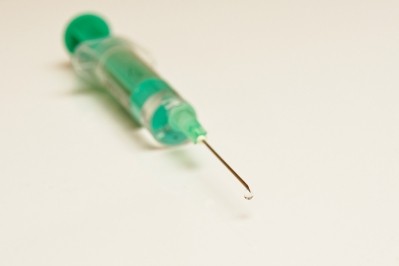Adaptimmune selects Biolife's freeze media for T-Cell therapy trials

Oxford, UK and Philadelphia, US-based biotech Adaptimmune is using its T-cell therapy platform to develop therapies for cancer and infectious diseases, and the firm has selected Biolife’s CryoStor freeze media for its myeloma therapy currently in phase I/II clinical trials.
The engineered T-cells are frozen following manufacture and prior to infusion into the patient, Dr. Gwendolyn Binder-Scholl, Executive Vice President at Adaptimmune, told Biopharma-Reporter.com, as an essential step to allow time for safety testing of the cell product.
“Freezing the engineered T-cells in a freezing medium that promotes retention of viability and potency (effectiveness) of the product is an essential aspect of the final cell product,” she said.
Whilst CryoStor fulfils this requirement, the medium is also “a complete formula, which improves safety and consistency of the cryopreservation process, and thus facilitates commercial application,” she added.
Some companies opt to produce their own freeze media for the step of freezing biopharmaceuticals - in a process Biolife CFO Daphne Taylor told this publication in February was called “home-brewed cocktail” - which are “created in a laboratory using a traditional approach which is not designed for today’s commercial clinical manufacturing requirements and regulatory scruitiny.”
However, Adaptimmune’s Binder-Scholl said CryoStor was at least as comparable to these home-made recipes and offered a number of benefits including a reduction in clean room time and improved lot-to-lot manufacturing reproducibility.
Furthermore, “Cryostor is manufactured in a manner that is compliant with Good Manufacturing Practice (GMP), which is a requirement for components used for commercial manufacture,” she told us, and “Biolife has submitted the components of Cryostor to the FDA under a Master File submission, which allows the FDA to review and approve use of the medium in manufacture of our clinical cell product.”
T-Cell Receptors
According to Binder-Scholl :“Adaptimmune’s product is a patient’s own white blood cells (T-cells specifically) which have been genetically modified with a protein called a T-cell receptor (TCR) which allows the T-cells to recognize the patient’s tumor.”
The company’s platform enhances the natural TCR affinity to either viral or cancer protein epitopes on the patient’s cells, overcoming the issue of non-recognition of the cancer target and the low affinity of binding from the T-Cell itself.
There are alternative engineered T-cell technologies, the firm’s website says, such as approaches that use Chimeric Antibody Receptors (CARs) to modify T-cells for therapeutic effect. However, the company claim these are limited by the low number of antibody targets available to re-direct the T cell.


















